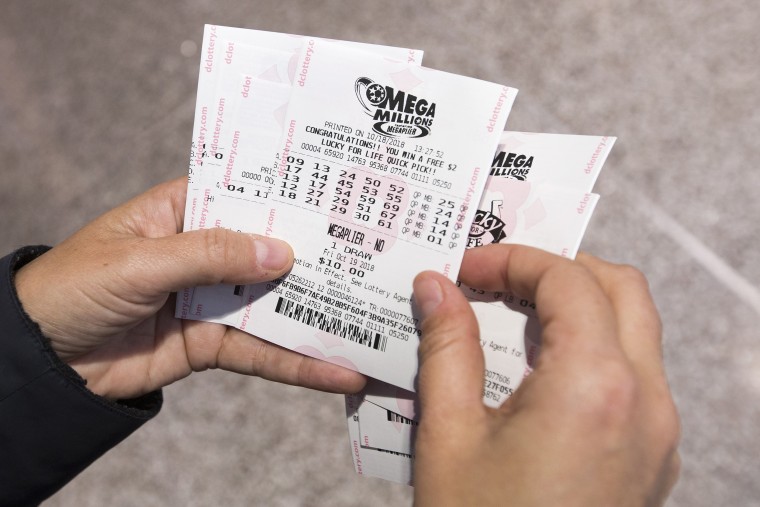The jackpot for Friday night's Mega Millions jackpot has reached $1 billion, the largest prize in the game's history.
It's now the second-biggest lottery prize in U.S. history, trailing only a 2016 Powerball jackpot that reached $1.58 billion.
And if no one wins on Friday night, lottery officials are projecting that the next jackpot, drawn on Tuesday, would reach about $1.6 billion.

The lump sum cash prize for a single winner of Friday night's draw would be $565.6 million.
Mega Millions is played in 44 states, the District of Columbia and U.S. Virgin Islands. The draw is at 11 p.m. ET.
"This is truly uncharted territory, and it’s exciting to see people across the country buying their tickets and joining in the fun,” Mega Millions lead director Gordon Medenica said in a statement.
"Hitting the $1 billion mark for the first time is historic, and we can’t wait to meet the winners who will share in that history.”
Thelast time a Mega Millions player hit all six numbers was on July 24.
Despite the massive jackpot, the odds of correctly picking all six numbers remain the same as every draw — a microscopic one in 302.5 million.
And if any one person or group were to match all six numbers, there'd be a host of financial decisions to be made.
"When you come into a large sum of money, particularly when you're looking at a near 1 billion payout, there's this idea that I have a great sense of security, and the idea that I will never have to worry about money again. In fact, it's completely the opposite. You have to worry about money more than ever before," said Paul Golden, a spokesman for the National Endowment for Financial Education, a Denver-based nonprofit that helps people manage money.
Over the years, various lotteries have been making their games harder to win, thus leading to bigger, attention-grabbing prizes.
Mega Millions, for example, changed its game in October 2017 by increasing the number of potential "Mega Balls" — the sixth and final ball drawn — from 15 to 25. That, and other changes decreased the chances of winning from one in 258.8 million to the current odds.